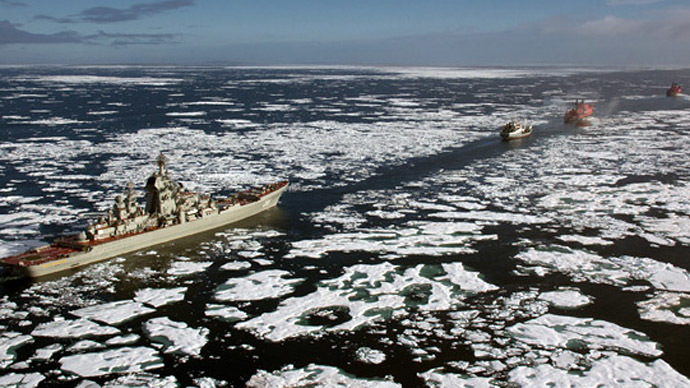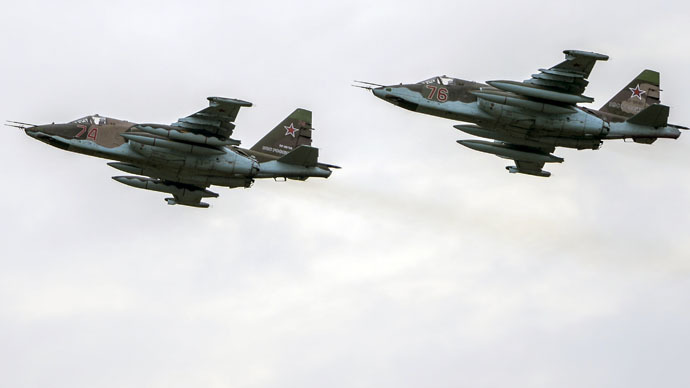Russia has submitted a revised bid for vast territories in the Arctic to the United Nations, the Foreign Ministry said Tuesday. The ministry said in a statement that Russia is claiming 1.2 million square kilometers (over 463,000 square miles) of Artic sea shelf extending more than 350 nautical miles (about 650 kilometers) from the shore.
A defence expert says Russia's new bid for the huge swath of Arctic territory, including the North Pole, backs Canada into an uncomfortable corner in future negotiations over the frozen region.
Moscow's revised international submission was revealed today in a statement by the country's foreign ministry and claims 1.2 million square kilometres of the Arctic shelf.
Russia, the U.S., Canada, Denmark and Norway are working with the UN to define jurisdictional boundaries in the Arctic, which is thought to hold as much as a quarter of the planet's undiscovered oil and gas. Rivalry for Arctic resources has intensified as shrinking polar ice is opening new opportunities for exploration.
Russia was the first to submit its claim in 2002, but the U.N. sent it back for lack of evidence.
Russia expects the U.N. Commission on the Limits of the Continental Shelf to start looking at its bid in the fall, the ministry said.
Haq, the U.N. spokesman, said there is no plenary meeting of the commission this fall so the revised Russian submission will be included in the provisional agenda for its meeting in February or March. In accordance with the commission's rules, he said Russia's latest submission is being circulated to all 193 U.N. member states, including all charts and coordinates.
In 2007, Moscow staked a symbolic claim to the Arctic seabed by dropping a canister containing the Russian flag on the ocean floor from a submarine at the North Pole.
The Kremlin also has moved to beef up Russian military forces in the Arctic. The effort has included the restoration of a Soviet-era military base on the New Siberian Islands and other military outposts in the Arctic. Earlier this year, the military conducted sweeping maneuvers in the Arctic that involved 38,000 servicemen, more than 50 surface ships and submarines and 110 aircraft. As part of the drills, the military demonstrated its capability to quickly beef up its forces on the Arctic Novaya Zemlya and Franz Josef Land archipelagos.
Greenpeace responded by warning of the environmental risks.
He urged countries seeking jurisdiction over the Arctic to work together to create a protected sanctuary around the North Pole.


No comments:
Post a Comment
Through this ever open gate
None come too early
None too late
Thanks for dropping in ... the PICs